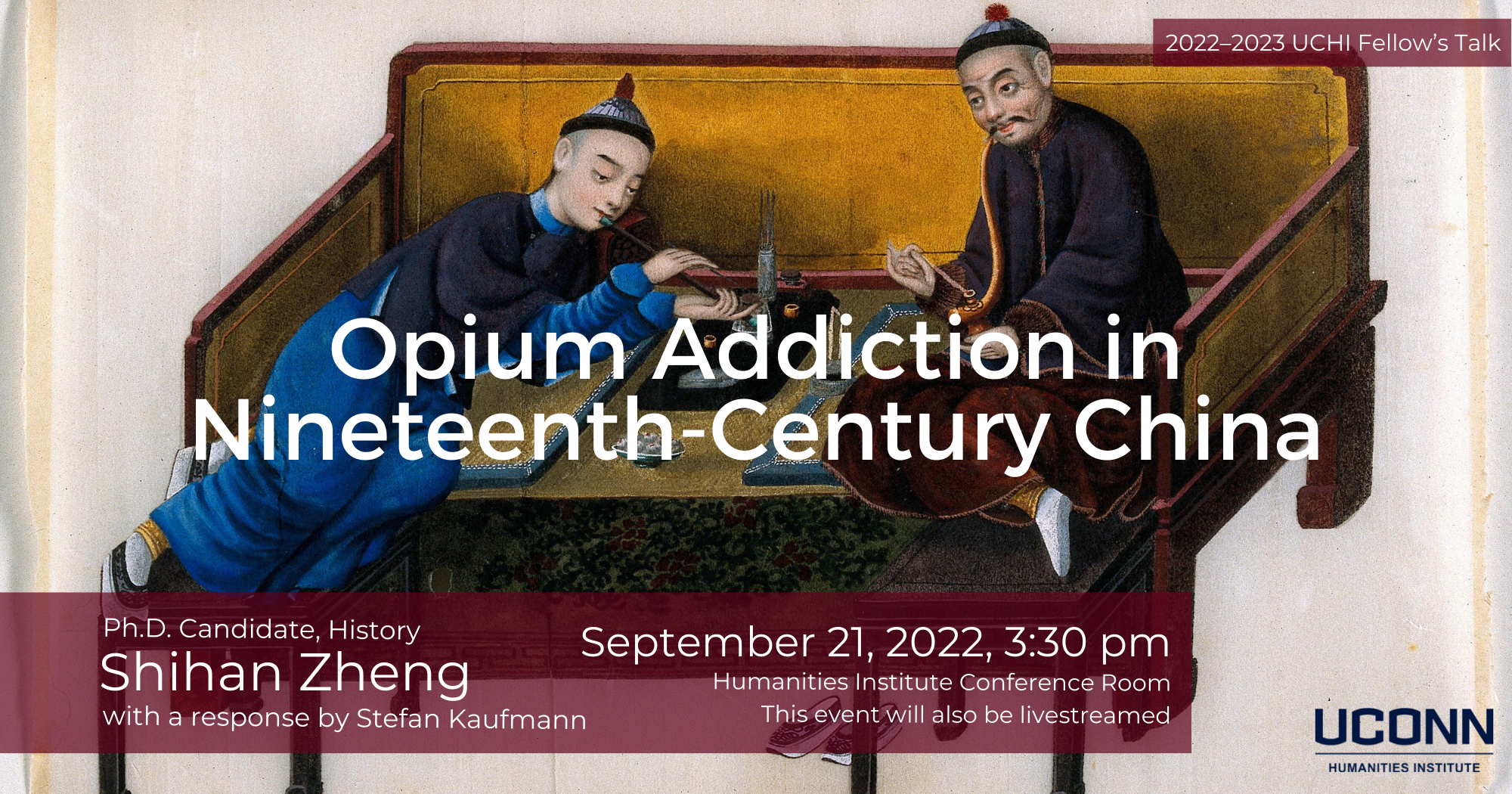Opium Addiction in Nineteenth-Century China
Shihan Zheng (Ph.D. Candidate, History, UConn)
with a response by Stefan Kaufmann (Linguistics, UConn)
Wednesday, September 21, 2022, 3:30pm, Humanities Institute Conference Room (HBL 4-209)
Add to Google calendar Add to Office 365 calendar Add to other calendar
The event will also be livestreamed with automated captioning.
Compared to Euro-American experience with opium, the story of opium smoking in nineteenth-century China appears strikingly peculiar. Western observers at the time believed that opium smoking was a symbol of incompetence, backwardness, and immorality—all the ills of traditional Chinese civilization. Thus, the discussion of opium was always incorporated in a broader criticism of Chinese customs that were viewed as archaic, uncivilized, and barbaric. Historians have highlighted the political and economic influence of opium in late-imperial China, but a thorough study of the dynamic and complicated history of the ideas related to opium addiction has not yet been done. This study seeks to trace the origins and development of discourse on opium addiction in late nineteenth- and early twentieth-century China. Shihan Zheng hopes to suggest that the creation of languages and ideas of opium addiction was part of the knowledge productions at the turn of the twentieth century, and the efforts to find the “cure” for the drug addiction had direct relevance to China’s experience with “modernity.”
Shihan Zheng is a History doctoral candidate at the University of Connecticut. His research interests include conceptual history, medical history, drug and addiction studies, and history of science. At UCHI, he will work on his dissertation project, “The Opium Discourse in China, 1830–1910.” This study will bring out nuances of the story of opium in China that have been neglected in historical literature, highlight the role of opium discourse in the construction of Chinese modernity, and help us better understand contemporary China.
Stefan Kaufmann is an Associate Professor of Linguistics at the University of Connecticut. His research revolves around the meaning and use of language: how information is encoded in linguistic expressions, the range of variability of this encoding across languages, and what linguistic patterns can reveal about the way speakers view and think about themselves and their physical and social surroundings. Kaufmann’s current project focuses on the the language of time and possibility, in relation to notions like uncertainty, causality, and hypothetical reasoning. Kaufmann has published numerous articles and book chapters on these topics. He will be working on a book manuscript at UCHI.
Access note
If you require accommodation to attend this event, please contact us at uchi@uconn.edu or by phone (860) 486-9057. We can request ASL interpretation, computer-assisted real time transcription, and other accommodations offered by the Center for Students with Disabilities.




